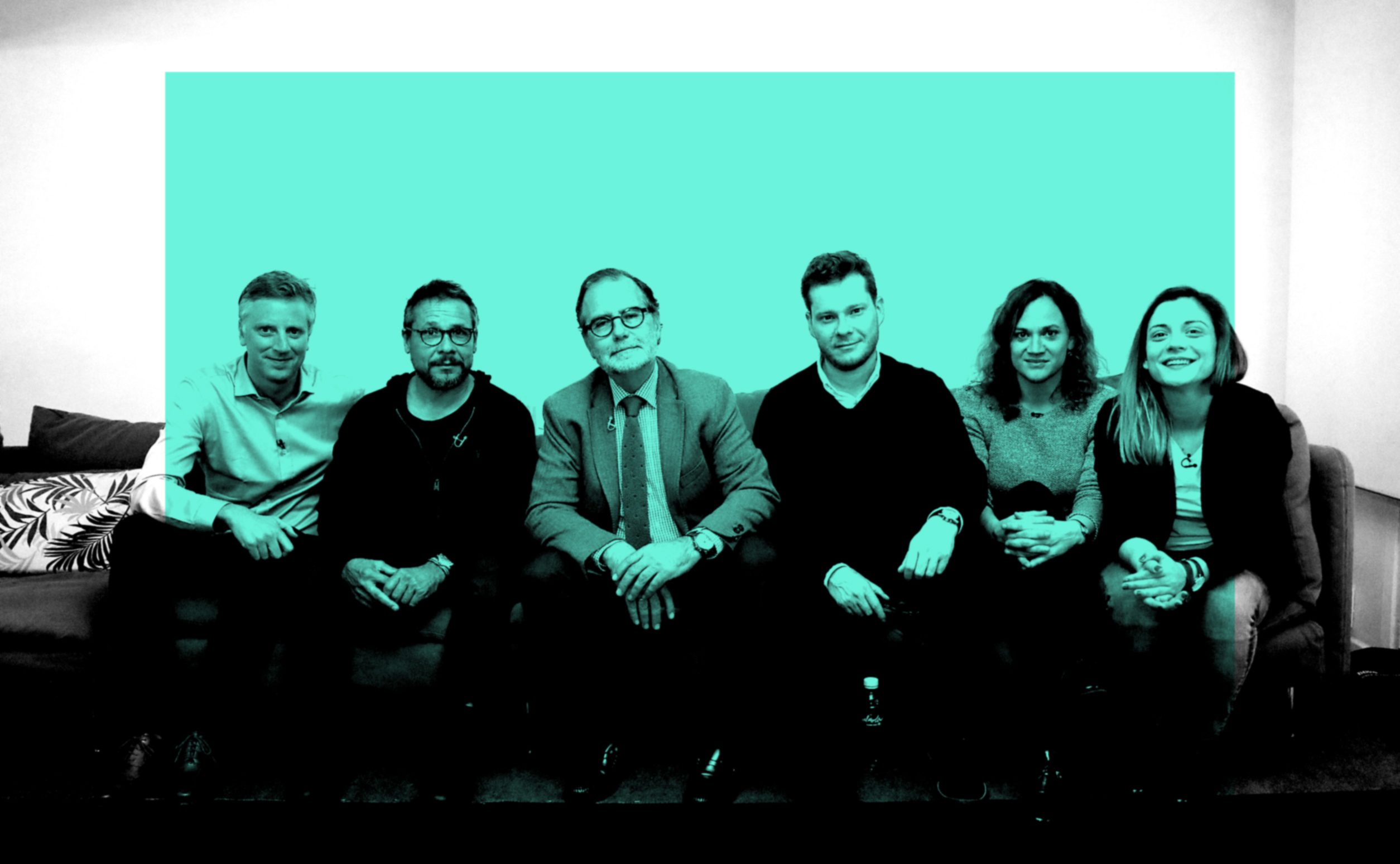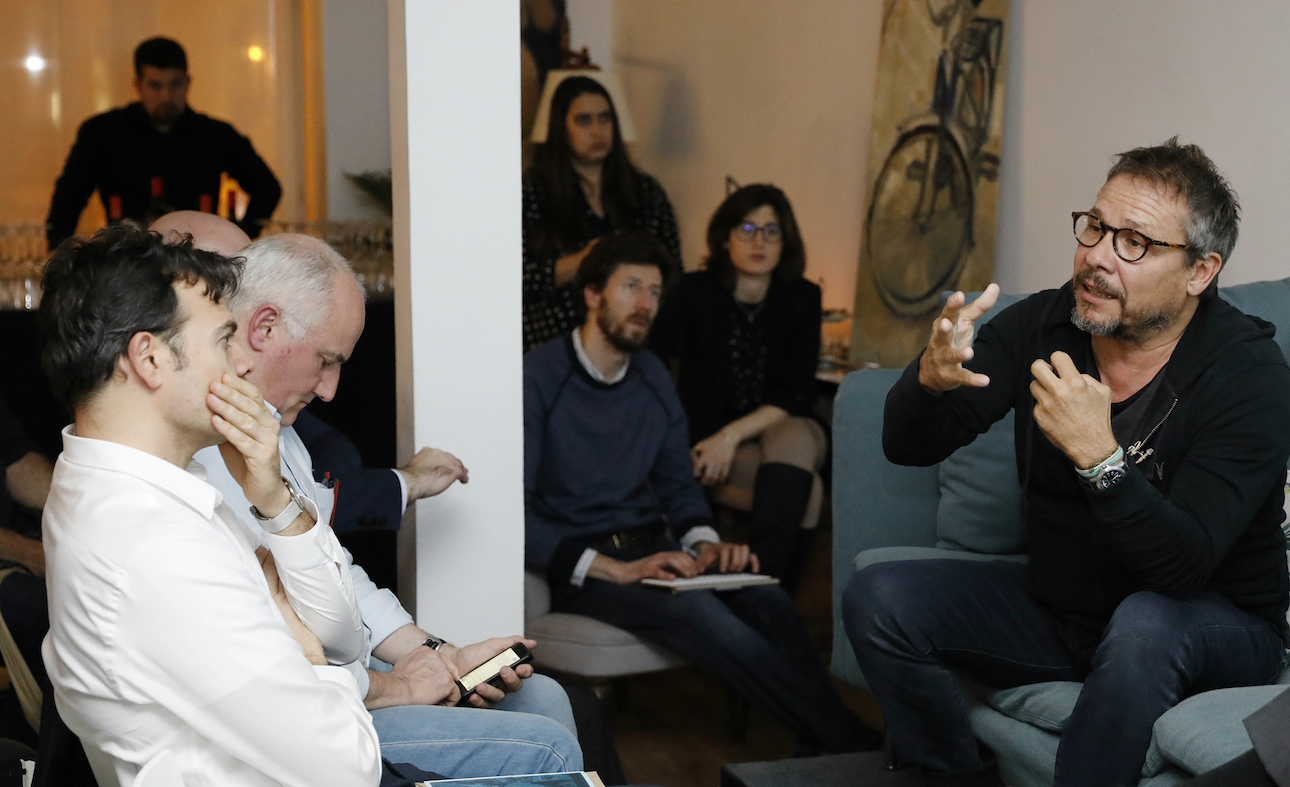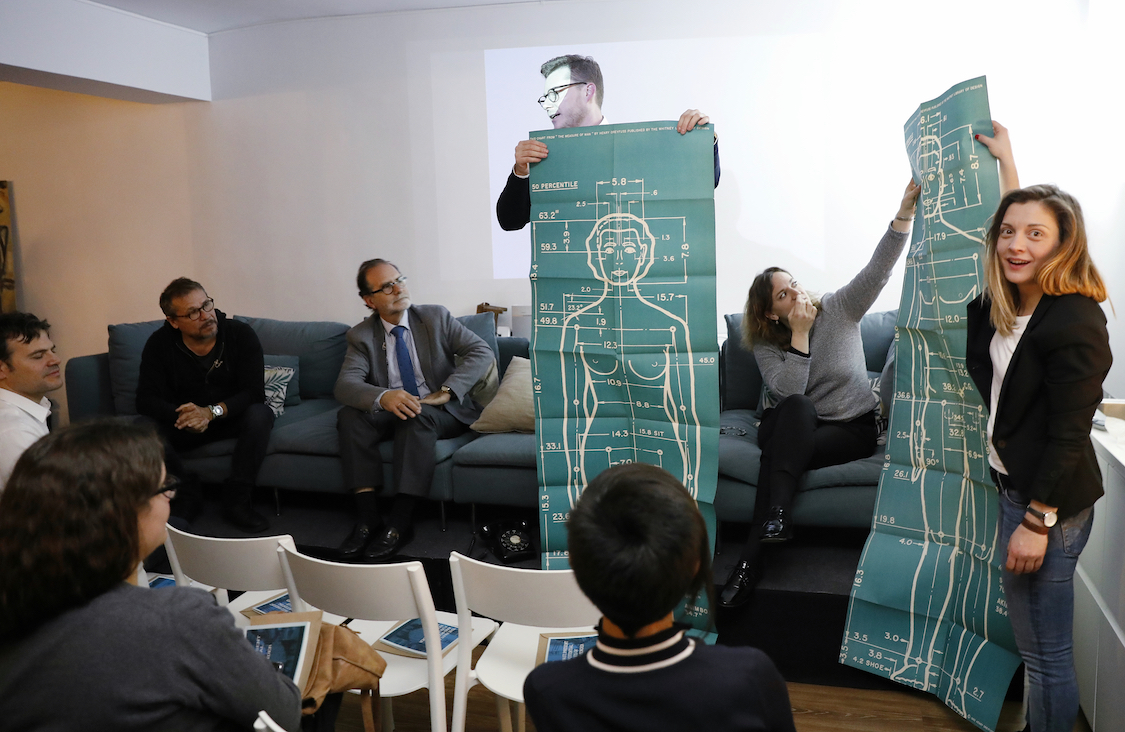
In BBVA Data & Analytics we believe that the future of technology has to be continually questioned, debated, and has to consider different points of view. With that philosophy, we organized this week an unconventional gathering of artists, public servants, designers and creators to explore the implications of Recommender Systems (RecSys).
These Machine Learning algorithms define how our world is shaped, how distances are shortened, and how new connections are created. Supported by the experimental work of Iskra Velichkova RecSys: What is a Recommendation in the Era of Machine Learning? we hosted a conversation in a charming old flat in Madrid. What follows it’s a picture of the connections, and ideas that were found there.
What a recommendation (really) is?
Recommender Systems help us connect with products, services or places, but moreover, they deconstruct a universe of emotions and personal connections. “Machine Learning algorithms allow us to access the knowledge of an entire city and travel in a multidimensional universe where we can find something that awakens an emotion”, explains Velichkova, BBVA Data & Analytics’ visual storyteller. According to Fabien Girardin, co-CEO of BBVA Data & Analytics, “We have to keep in mind that the digital behaviour of people can be analyzed now, and there is a great responsibility in this.”
A century ago French author and troubled bourgeoisie Marcel Proust explained in his novel À la recherche du temps perdu with outstanding clairvoyance the process that connects experiences and products with our most intimate emotions. Velichkova used the example of Proust and his famous madeleine to imagine how machines may think of us when trying to understand our universe of past experiences and possible future connections.
The conceptualization created by BBVA Data & Analytics posed questions and let the answers up for the audience to figure out. To lead the debate, we invited the president of the highest court in the Autonomous Community of Madrid, Fernando Vieira; the head of innovation at Celler Can Roca, Heloïse Vilaseca; award-winning production director Alain Bainée and interaction designer Javier Cañada.
Vieira reflected on how the ubiquity of perception through technology (he is a member of the committee in Madrid that makes sure that CCTV networks respect privacy) can “interfere in social interactions and our spontaneity”.
Baineé and Vilaseca explained how they try to conjure in their work those same emotions that Proust’s madeleine triggered in him one hundred years ago. One of Messi’s goals -in the case of Vilaseca- or an obscure childhood memory -in the case of Baineé’s version of Snow White- can be conjured with material and subtle recreations, the same way recommender systems could one day give you what you are looking for even before you ask for it.

Cañada, an interaction designer, offered a more sober view of how knowing consumer preferences and her configuration helped companies and designers to deliver something useful, and convenient. The amount of data generated today can “measure” everyone in a way never achieved before. For instance, knowing the “emotional context” of a person is essential to understanding the interaction of that person with the product. As the debate moved forward Cañada posed a new question: “but what if being able to deliver the most convenient product that perfectly fits one’s needs turns us into idiotic beings?”

So, does RecSys contribute to connecting us all in a more efficient and more meaningful way?
Examples such as the use of Facebook as an echo chamber to reinforce political biases and polarization during the 2016 US Presidential Election made some participants doubt that Recommender Systems are actually contributing to enrich our worldview.
Borja Adsuara, a lawyer specialized in technology and privacy and consultant, believes that “affinity is what is actually promoted”, not discovery, if we consider the way recommender systems are designed these days. Some data scientist quickly pointed out that one of the most important challenges of their RecSys work is to “add noise” to allow people to find things outside their comfort zone, avoiding in that way the “bubble effect of recommendations” and, ultimately, widening our world.
According to Adsuara, recommendations are conveyed from a “position of authority”, and mostly for mere marketing purposes; to “sell you something”. BBVA Data &Analytics’ Juan Murillo disagreed: “at least for us, we see them as tools to provide the client what he or she needs when they most needed. We want to help their peace of mind. It is a win-win situation”.
Everyone agreed that the industries that apply RecSys have to avoid to use these tools as “attention manipulators”, and, therefore, transparency and trust are basic foundations of an “honest” RecSys.
The most productive aspect of the debate created by RecSys: What is a Recommendation in the Era of Machine Learning was the ability to help sprout new ideas in the audience and to add nuances to previous ones. As BBVA Data & Analytics’ data scientist Juan Arévalo recognized: “for us, it is of utmost importance to build confidence with data. In this regard, it’s interesting to realize that, in some way, the recommendations could be offered from a position of authority”, as it could come from a company that knows more than you, that analyzes data the user does not necessarily know it’s being used (even though he agreed to it), and that you trust. The debate also prompted Vieira to present a new concept: “loyalty. The recommender may have to show loyalty to the user”.
As the conversation progressed entrepreneur Marcelo Soria found on his phone a human-brain-processed recommendation; a new way of expressing how a RecSys can shorten spaces (physical, or otherwise), bring back emotions and create meaningful connections in the words of Uruguayan poet Mario Benedetti:
Mi táctica es mirarte,
aprender como sos,
quererte como sos.
Mi táctica es hablarte
y escucharte,
construir con palabras
un puente indestructible.
Mi táctica es
quedarme en tu recuerdo,
no sé cómo ni sé
con qué pretexto,
pero quedarme en vos.
Mi táctica es ser franco
y saber que sos franca
y que no nos vendamos simulacros
para que entre los dos
no haya telón ni abismos.
Mi estrategia es,
en cambio,
más profunda y más simple.
Mi estrategia es,
que un día cualquiera,
no sé cómo ni sé
con qué pretexto,
por fin me necesites.
Maybe the answers on how to build technology that helps us explore more human connections have been there all along, and we just have to read more poetry.